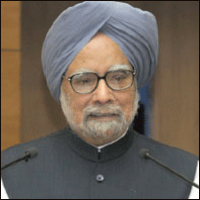
Prime Minister Manmohan Singh has given his assent to the constitution of a new pay commission which would raise the salaries of government employees. Although it will be effective only from January 2016, it is seen as politically motivated, given next year’s general elections.
The average time taken by a pay commission to submit its recommendations has been about two years in the past.
Accordingly, allowing about two years for the seventh central pay commission to submit its report, the recommendations are likely to be implemented with effect from January 2016, according to a note floated by the finance ministry. Last pay revision based on recommendations of sixth pay commission was implemented from January 2006.
The last pay commission was constituted seven years ago which submitted its report in 2008 but its recommendations was implemented retrospectively from 2006.
This was one of the factors which boosted domestic consumer expenditure at a time the global economy went into a tailspin with the financial crisis. India soon emerged out of the slowdown partly supported by the fresh disposable income at the hands of millions of households.
Although overall remuneration of government employees changes more frequently with an in-built pay component of ‘dearness allowance’ which is revised upwards in-tune with inflation, the 10-yearly pay revisions bring a largesse to government employees.
While it boosts consumer spending with higher disposable income at the hands of millions of government employees as well as pensioners, it also creates a fiscal liability for the government.
The finance ministry note said the names of the chairperson and members as well as the terms of reference of the proposed pay commission will be finalised and announced shortly after consultation with major stakeholders.
(Edited by Joby Puthuparampil Johnson)